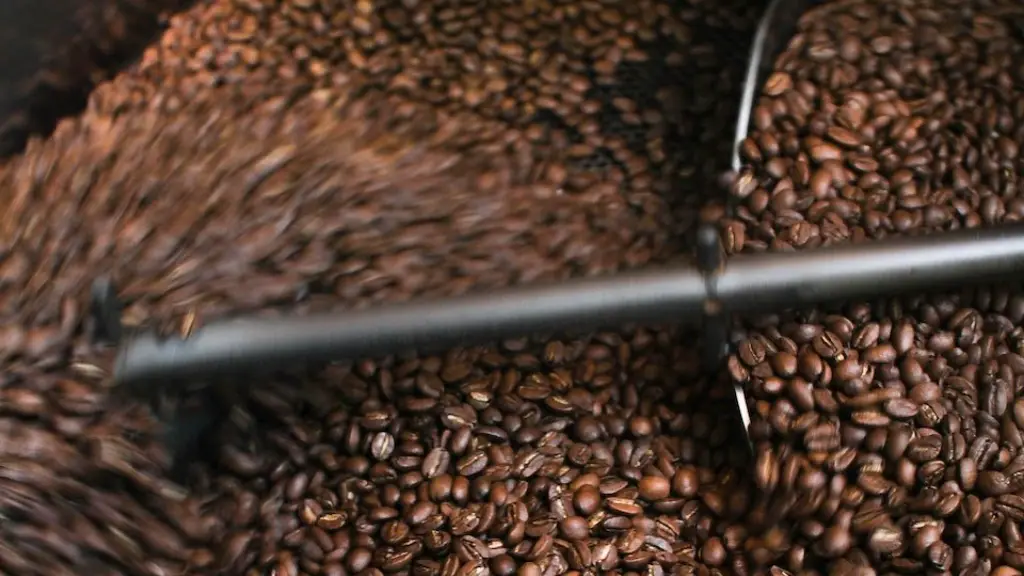The taste of black coffee
Black coffee is a strong, bitter and flavorful drink that can be enjoyed at any time of the day. It is known to provide a quick surge of energy and a sustained boost when the caffeine content is sufficient. Many people find that drinking black coffee before meals can help with digestion, especially when served without milk or sugar. But can one drink black coffee after a meal?
Drinking coffee after eating
It is generally accepted that drinking coffee after a meal can have a positive effect on digestion. Caffeine stimulates certain hormones that aid in the digestion process, helping to break down the food quickly and efficiently. It is also believed that drinking black coffee after a meal helps to neutralize acids in the stomach and reduce the feeling of bloating.
Pros of black coffee after lunch
The most obvious advantage of drinking black coffee after lunch is that it can help to settle your stomach and ease digestion. Caffeine will also help to promote the movement of food through your digestive tract, which can be beneficial if you have digestive issues such as constipation or diarrhea. Additionally, black coffee contains antioxidants which can help to protect your cells from damage and reduce inflammation.
Cons of drinking black coffee after lunch
While it is generally accepted that black coffee can be beneficial for digestion, it is important to be mindful of the potential side effects. Drinking too much caffeine can cause restlessness and anxiety, so it is important to monitor your intake. Additionally, drinking black coffee with your meals can interfere with the absorption of essential nutrients, as the caffeine reduces your body’s ability to absorb them.
What the experts say
Overall, the effects of drinking black coffee after a meal are likely to be beneficial as long as it is consumed in moderation. Many medical professionals recommend that it is best to drink black coffee without additives, such as sugar or milk, as these can interfere with digestion. Additionally, experts advise that people with sensitive stomachs should avoid drinking black coffee at all, as it can worsen underlying conditions.
Myths about black coffee after lunch
There are many myths surrounding black coffee and the effects it can have on digestion. It is widely claimed that black coffee can help to prevent indigestion, heartburn, and bloating, however there is little scientific evidence to support these assertions. Additionally, some people believe that black coffee delays the absorption of nutrients in the stomach, however this claim has also been disproven by scientific research.
The effects of black coffee on the body
Black coffee can have a variety of effects on the body depending on the individual and how it is consumed. In general, it is known to provide a quick surge of energy, alertness, and improved focus. It can also reduce feelings of fatigue and help to promote better moods. Additionally, black coffee contains a variety of essential minerals and vitamins which can be beneficial for overall health.
How to moderate black coffee intake
If you are considering drinking black coffee after lunch, it is important to do so in moderation. Generally, it is recommended to drink no more than three cups of coffee per day, and even less if you are particularly sensitive to caffeine. Additionally, it is best to drink black coffee without added sugar or milk, as these additives can interfere with digestion.
Metabolic impact of black coffee after lunch
The metabolic impact of drinking black coffee after lunch will depend on the individual and their tolerance for caffeine. Generally, a single cup of black coffee should not have a significant effect on metabolic processes as long as it is consumed in moderation. However, excessive consumption may result in a rapid influx of energy and an eventual crash.
Health considerations of black coffee after lunch
People with certain health conditions, such as high blood pressure, diabetes, and heart disease, should moderate their intake of black coffee after lunch. Additionally, people who are pregnant or breastfeeding should limit their intake as the effects of caffeine on the developing fetus and baby are still not well understood. It is also important to keep in mind that the effects of caffeinated beverages may differ from person to person, so it is wise to speak to a medical professional before consuming.
Nutritional benefits of black coffee after lunch
Black coffee contains a variety of essential vitamins and minerals which can be beneficial for overall health. It is rich in antioxidants which can help to protect your cells from damage and reduce inflammation. Additionally, drinking black coffee after lunch can help to settle the stomach and ease digestion. A single cup of black coffee can provide up to 95 milligrams of magnesium and up to 2 milligrams of iron, both of which can help to support healthy bodily functions.
Social considerations of black coffee after lunch
Many people enjoy sharing a cup of black coffee with family and friends after a meal. However, it is important to remember that drinking too much caffeinated beverages can cause restlessness and anxiety, so moderation is essential. Additionally, some people may be sensitive to the effects of caffeine, so it may be wise to avoid serving black coffee after lunch if someone in your party has this condition.
Financial considerations of black coffee after lunch
The financial implications of drinking black coffee after lunch will depend on the type of coffee consumed, as well as the frequency. Generally, purchasing high-quality coffee beans or ground coffee can be more costly than instant coffee, and it is important to remember that these costs can add up if consumed frequently. Additionally, purchasing coffee beverages on a frequent basis can become costly, so it may be wise to consider making your own at home.
Environmental considerations of black coffee after lunch
When considering the environmental impact of drinking black coffee after lunch, it is important to be aware of the processes involved in producing and consuming coffee. The production of coffee is known to have a significant impact on the environment, primarily due to the use of fertilizers and pesticides, as well as the removal of natural vegetation. Additionally, the packaging of coffee products and the transportation of beans to their destinations can have an environmental cost.
Conclusion
When consumed in moderation, black coffee can be a beneficial addition to any meal. It can help to promote digestion, reduce bloating, and offer a variety of essential vitamins and minerals. However, it is important to be mindful of the potential side effects, such as restlessness and anxiety, as well as any underlying health conditions that may be exacerbated by the consumption of coffee. Additionally, it is important to consider the environmental and financial implications of drinking coffee on a regular basis.



